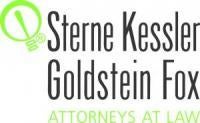On June 2, 2014, the U.S. Supreme Court issued a decision in Limelight Networks, Inc. v. Akamai Technologies, Inc. et al., holding that a defendant may not be liable for induced infringement of a patent under 35 U.S.C. § 271(b) when no one has directly infringed the patent under § 271(a) or any other statutory provision.
The Patent at Issue
Akamai Technologies is the exclusive licensee of the patent at issue, U.S. Patent No. 6,108,703. The ‘703 patent claims a method of delivering electronic data using a content delivery network (“CDN”). Website owners, known as “content providers,” contract with Akamai to deliver the content of their websites to internet users. The method includes a step of designating certain components of a content provider’s website to be stored on Akamai’s servers (known as “tagging”) and accessed from the servers by internet users. Limelight Networks operates a CDN and carries out some steps of the claimed method. However, Limelight does not designate the components of its customers’ websites to be stored on its servers and requires its customers to do their own tagging.
The Supreme Court’s Decision
In a unanimous decision that overturned an en banc decision by the U.S. Court of Appeals for the Federal Circuit, Justice Alito emphasized that a defendant’s liability for inducement of infringement must be predicated on direct infringement. The Federal Circuit’s decision indicated a defendant can be liable for inducement of infringement under § 271(b), even if no one had committed direct infringement, because direct infringement can exist independently of a violation of the provisions of § 271. However, Justice Alito explained there had been no infringement of the claimed method here, because “the performance of all the patent’s steps is not attributable to any one person” and “where there has been no direct infringement, there can be no inducement of infringement under § 271(b).”
Justice Alito further noted that the language of § 271(f)(1) reinforces the Court’s reading of § 271(b) because § 271(f)(1) provides that “when Congress wishes to impose liability for inducing activity that does not itself constitute direct infringement, it knows precisely how to do so” and that “courts should not create liability for inducement of noninfringing conduct where Congress” has not elected to do so. Justice Alito acknowledged Akamai’s concerns that a defendant could evade liability under the Court’s interpretation by dividing performance of a method patent’s steps with another party, but indicated this concern “does not justify fundamentally altering the rules of inducement liability that the text and structure of the Patent Act clearly require.”
What is the Significance of Limelight?
According to the Court, for direct infringement to occur, the performance of all the steps of a patented method must be attributed to a single party or person. Thus, if the steps of a patented method are performed by more than one party or person, direct infringement under § 271(a) did not occur and there is no liability for induced infringement. In other words, in the absence of direct infringement, there is no inducement of infringement under § 271(b). As such, the Limelight decision could make it more difficult for patent owners to show inducement of infringement. Proving inducement of infringement may be particularly challenging for certain pharmaceutical and medical diagnostic patents, where the steps in the claimed methods — assuming they have subject matter eligibility under 35 U.S.C. § 101 — could involve actions taken by a combination of testing laboratories, doctors and patients, and not by any single party. Furthermore, the Court’sdecision could also allow active pharmaceutical ingredient manufacturers to avoid liability for inducement of infringement where the claimed steps in a process patent are performed by two or more parties. Drafting single-step method claims remains important to avoid a Limelight end- around.




 />i
/>i

